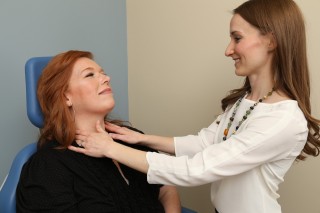Ashford Clinic Blog
Who Needs to Watch for Thyroid Issues?

Thyroid issues are very common, though the causes of many of these conditions remains unknown. It is estimated that over 12 percent of the U.S. population will develop a thyroid condition at some point in their lives. While 12 percent may not seem like a particularly large number, it means that roughly 20 million people have some form of thyroid disease. What is more alarming is that 60 percent of individuals who have a thyroid issue are unaware of their condition.
Statistics like these may seem overwhelming, but the good news is that most thyroid disorders, from thyroid nodules to thyroid cancer, are treatable or manageable with proper medical attention. Since these conditions can go unnoticed for a long period of time, the key to the most effective treatment is detection. So, who should be concerned about thyroid issues and what should they be looking for?
Women
Thyroid conditions are far more common in women. In fact, women are five to eight times more likely to have thyroid problems than men and thyroid problems will develop in approximately one in eight women. That is not to say that thyroid issues are an impossibility for men, but the odds are significantly higher for women.
Those with family history
Individuals with a family history of thyroid issues are also more prone to develop these conditions, particularly those with family history of thyroid malignancy.
Those who had radiation therapy as children
Individuals who had radiation therapy to the head or neck for adenoids, acne, and other reasons when they were children are also more likely to develop a thyroid malignancy.
What to look for
Knowing what to look for is a large part of detecting thyroid disorders. While many are discovered by doctors during routine physical exams or on CT scans performed for unrelated issues, there are some things to look out for like swelling or bumps in the neck that can be visible when looking in the mirror and, in more serious cases, difficulty breathing or swallowing.
Because the thyroid affects most of the other systems in the body, symptoms of an over or underactive thyroid can be broad and seemingly related to other conditions. For instance, symptoms of thyroid disorders are sometimes mistaken for menopause due to the similarity in symptoms.
If you feel that you may be prone to thyroid issues, or simply want more information on the topic, talk with your doctor.


